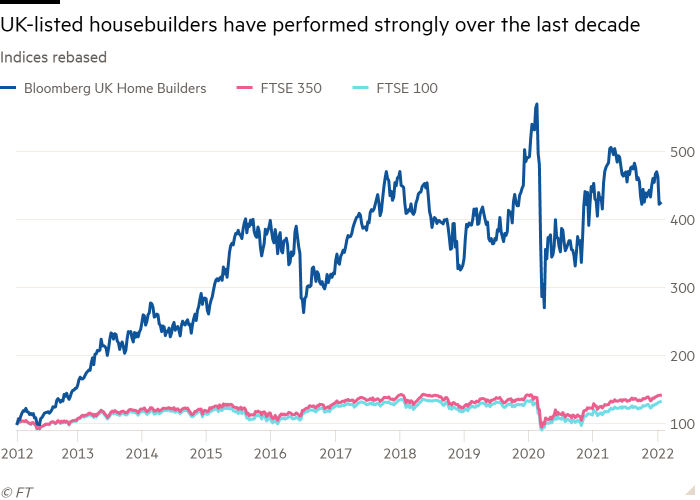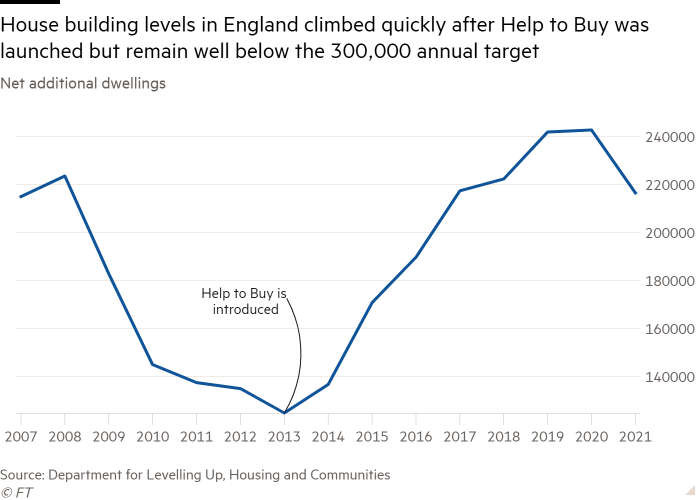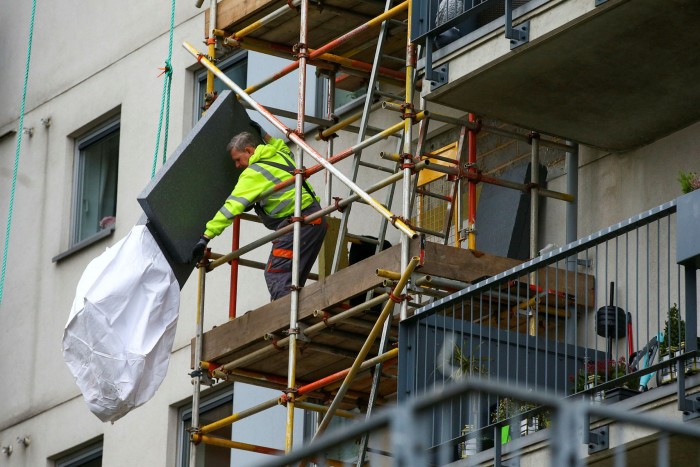Michael Gove’s demands last week that British property developers find £4bn to help address the cladding scandal was the second time in his short tenure as housing secretary that he has upset a sector with strong ties to the ruling Conservative party.
“For too many of the people living in properties your industry has built in recent years, their home has become a source of misery,” he wrote in an open letter to the industry.
Gove had only been in the job for four months when he tore into developers, threatening legal action if they did not help replace dangerous cladding on high rises — a safety issue that has affected millions in the wake of the deadly Grenfell Tower fire in 2017.
He had previously upset the industry within days of taking over the housing brief in September — announcing a review of proposed major planning reforms designed to ease development in some areas.
According to more than a dozen developers and politicians who have spoken to the Financial Times, Gove’s interventions have left government’s relationship with the industry in tatters.
“I’ve been in this industry for over 40 years, I’ve never seen or heard the vitriol I’m hearing at this current time,” said Steve Morgan, a housebuilding veteran who founded Redrow.
Executives are hoping for a rapprochement at a meeting with Gove this week. If not, the souring threatens to reverse accommodative policies, developed over the decade that the Tories have been in power.
This close relationship has allowed housebuilders to reap large profits in return for building more homes to help address England’s housing crisis.

It began when David Cameron’s government introduced the controversial Help to Buy equity loan scheme in 2013, followed by a 1m new homes target by 2020. That target was increased in 2017 after Theresa May took power to 300,000 new homes a year by 2025.
“There’s no doubt there was an informal understanding that if we were going to hit the 300,000 a year house building figure then the major developers would have to make a significant contribution towards that and would need some help,” said a former Tory housing minister.
“The industry has definitely been able to leverage that into helpful policy,” said an executive at one housebuilder.

The targets were popular nationally but when translated into big housing developments proved the opposite at local level, prompting a vociferous backlash. This was underlined in the shock defeat for the Tories in the Chesham and Amersham by-election last June — a result that forced the government to rethink its planning reforms.
Gove has sought to put distance between his department and the sector, in contrast to predecessor Robert Jenrick, who was criticised for cosying up to developers.
The move, which wiped billions from builders’ valuations, took the sector by surprise and led many executives to conclude that the government had decided out of political expediency to villainise them.
“We’re characterised as moustachioed Victorian barons . . . the court of public opinion has been put in front of sensible discussion,” said Graham Prothero, chief operating officer at Vistry Group, the London-listed housebuilder.
“I have no problem with polluter pays . . . But [the building safety crisis] is a result of a very broad group of people — regulators, architects, manufacturers, contractors and developers,” he added.
But Gove’s hand was forced by the Treasury on the cladding issue, said the former housing minister. “There was a clear political necessity to [stop leaseholders paying]. But the Treasury, in classic Treasury style, refused to pick up the tab, which is why Gove was driven to put the onus of paying for this on the industry.”
Developers fear they will bear the brunt of the cladding costs, despite Gove indicating that he would hold other parts of the industry, such as the makers of the panels, to account.
“We are relatively easy targets. Our members are UK based, pay UK taxes and employ people in this country. Other groups involved are more difficult to access, they make lots of money but they’re not always accessible,” said David O’Leary, policy director at the Home Builders Federation.
As well as feeling victimised, builders complain of being shut out by Gove. “He has not consulted with the industry,” Morgan said.
But leading Conservatives give short shrift to such arguments. “You can quibble about timescales and some details but I hope this will be a significant turning point to make it clear that the property development industry will be treated like any other industry,” said Damian Green, former deputy prime minister.
Another minister involved in housing policy said it was “outrageous” that developers thought they could rely on the taxpayer “to pick up the tab on buildings they have built. Their margins have gotten fatter and fatter.”
Such antagonism between housebuilders and Conservative politicians is new. Both blanch at suggestions of cosiness, but the relationship has been mutually beneficial.
The Help to Buy scheme — criticised by a recent House of Lords report as having failed to deliver good value for money — has boosted demand, construction and builders’ profits.
The FT revealed last July that in the two years since Boris Johnson became prime minister, a quarter of all total donations to the Tory party had come from the property sector — a source of income that could be threatened by Gove’s broadside. “After all, why would you give money to the guy kicking you?” asked one property donor.
The collapse in trust with the sector could also have wider ramifications for the government’s plans to boost housebuilding, including delivery of its levelling up agenda and its ambitious climate targets.
O’Leary said developers would want to keep building, but that getting above 250,000 new homes a year in a tougher policy environment was unlikely. “If you simply take cash out of our businesses, well that’s the cash we use to build homes,” said Prothero.
Stay connected with us on social media platform for instant update click here to join our Twitter, & Facebook
We are now on Telegram. Click here to join our channel (@TechiUpdate) and stay updated with the latest Technology headlines.
For all the latest Business News Click Here
For the latest news and updates, follow us on Google News.


